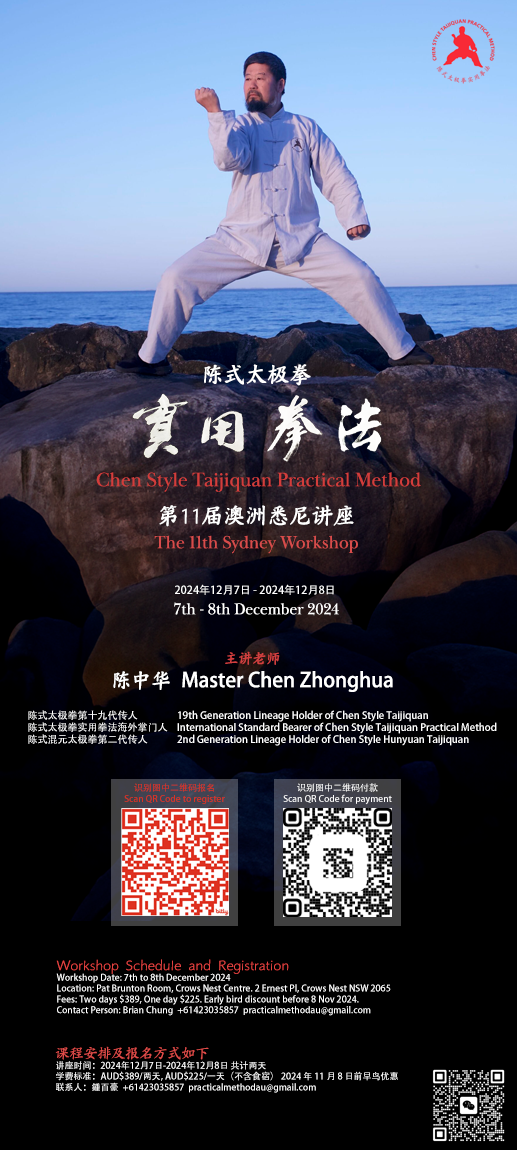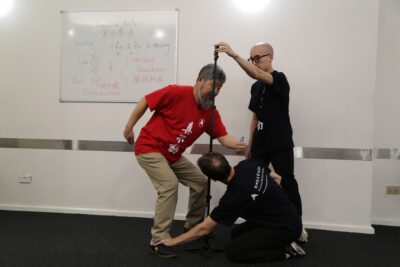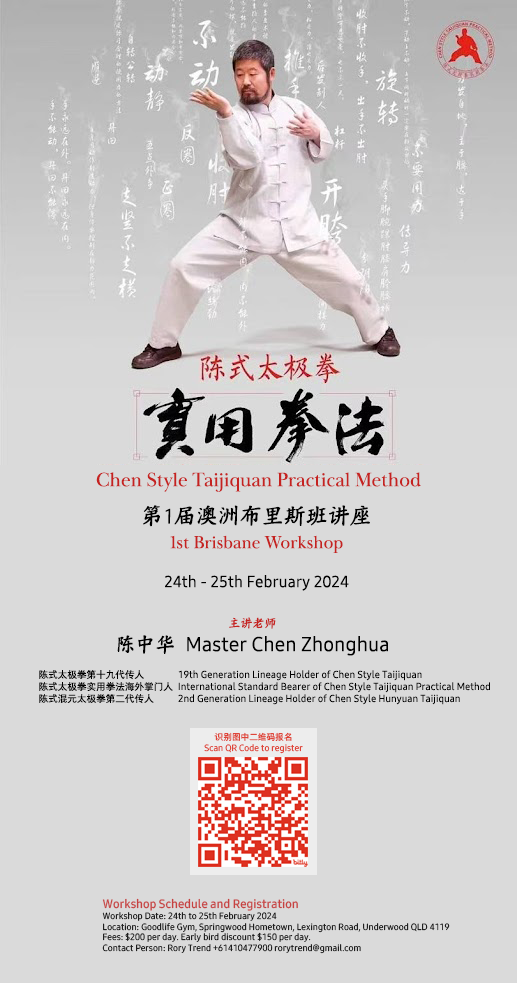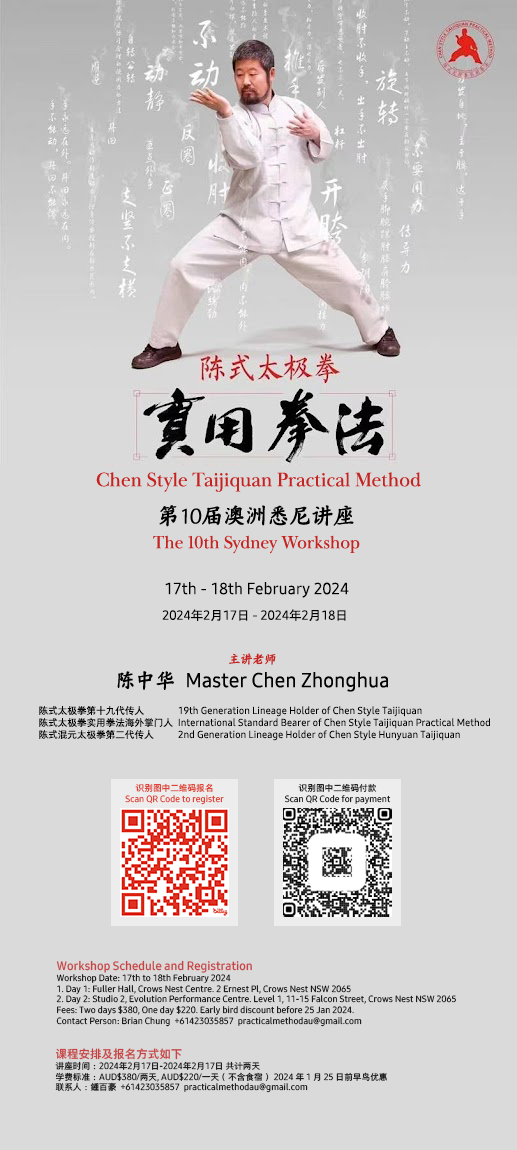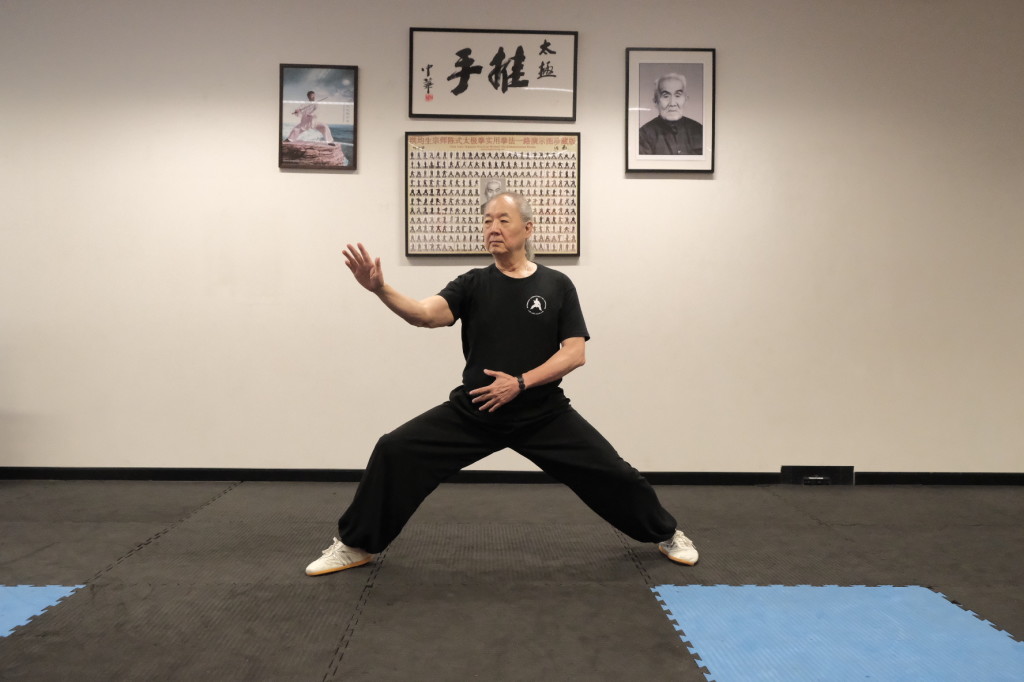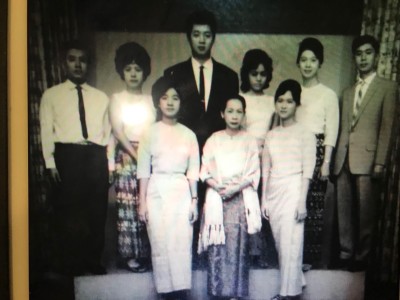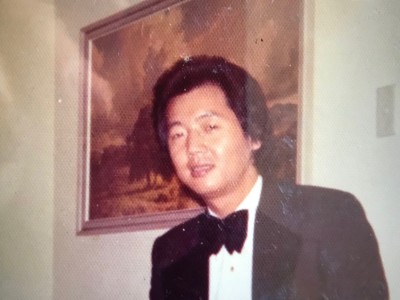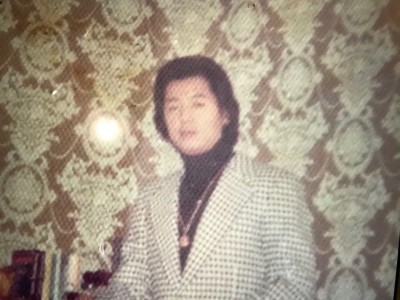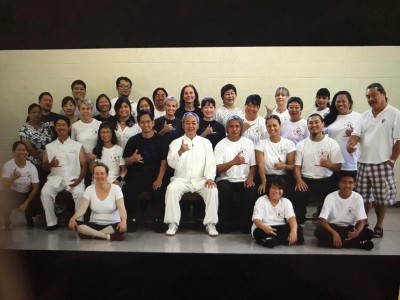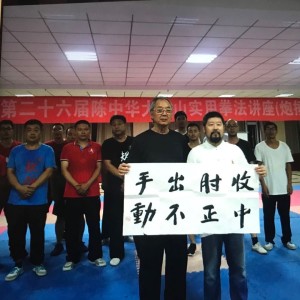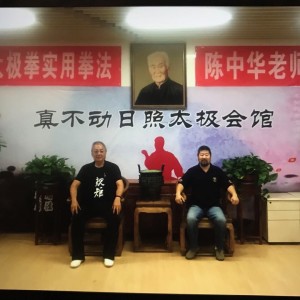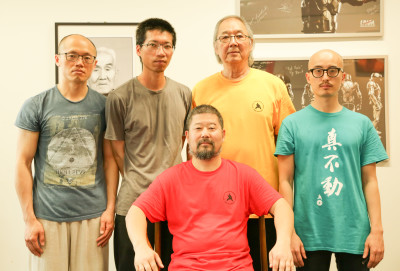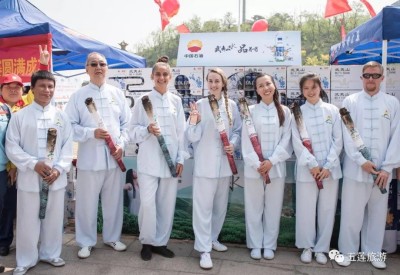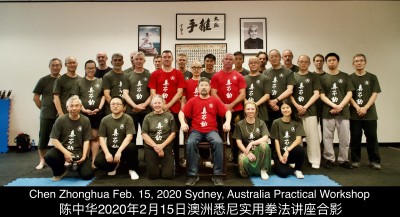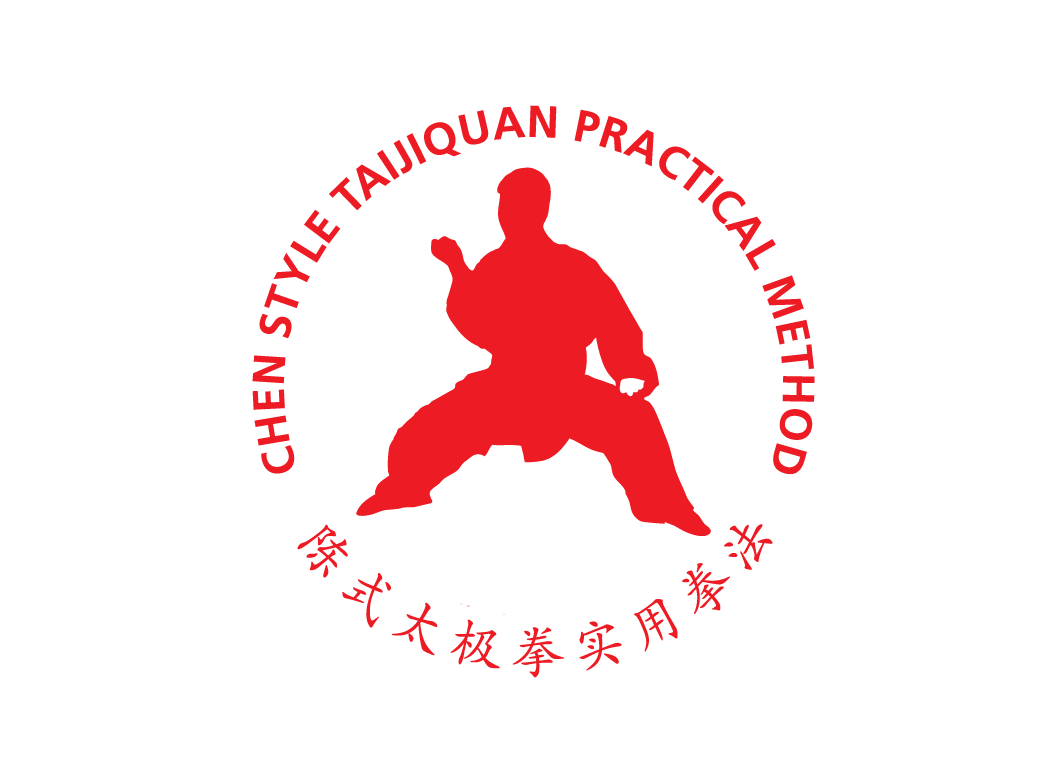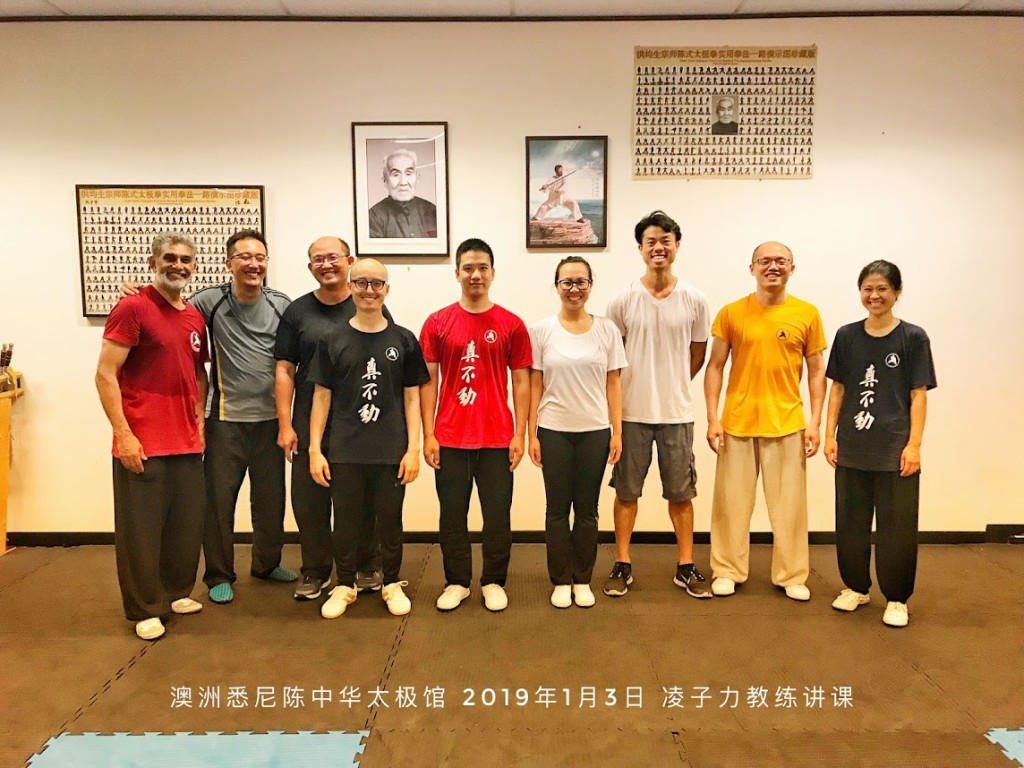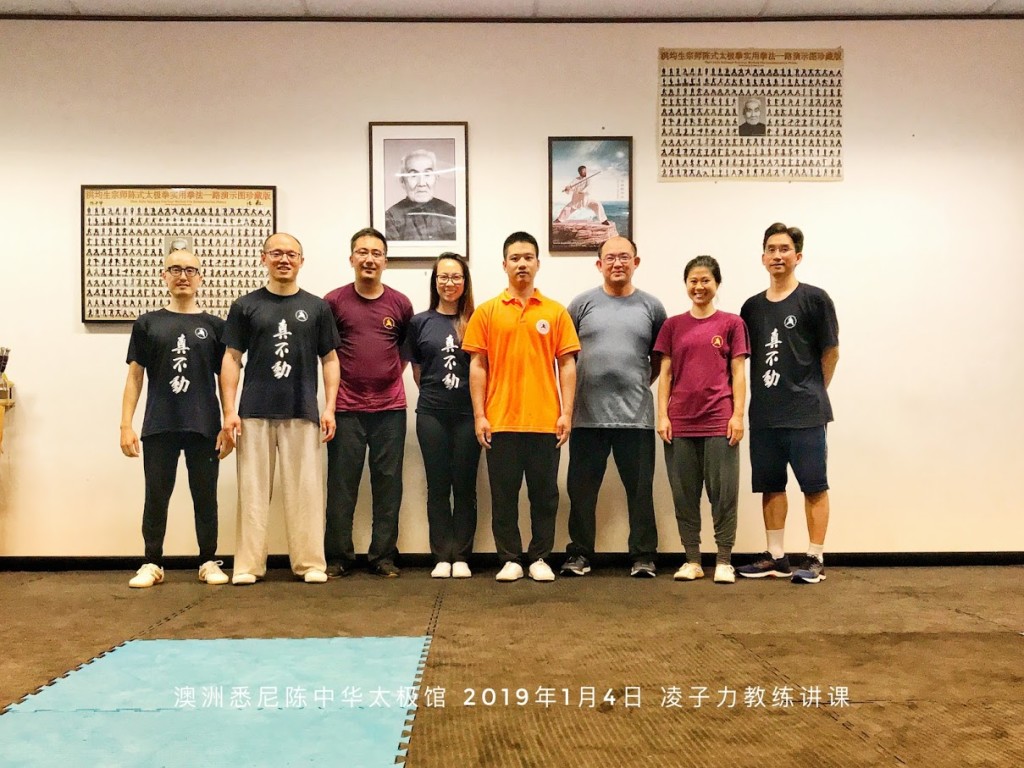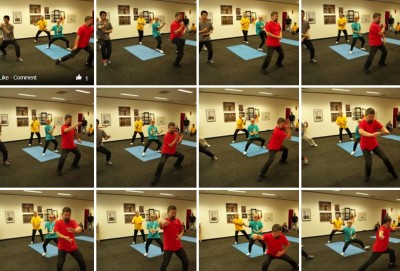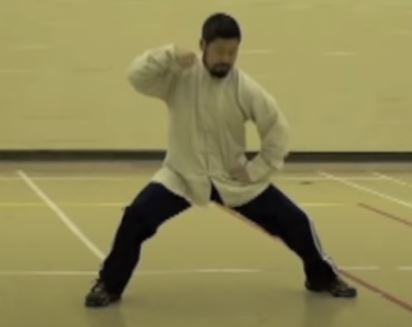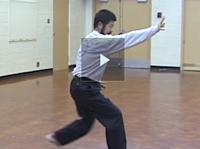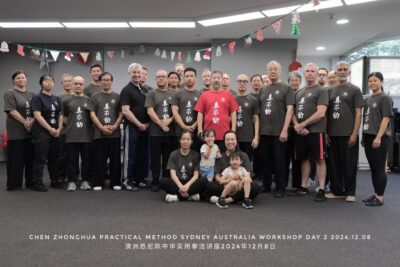
-
49/51. The universe is made in a way there is a secret. Little bit off encourages stability and growth. We say that’s a corner.
-
Secret with two cards.
-
Practical Method is a system that works on space. The final frontier.
-
When you are doing it right, there is nothing about you that you can feel. A machine is incapable of making a mistake.
-
Master positioned a chair. Taiji is one. The chair was balanced on one corner on the floor. When you let go, it falls over. This is why Taiji so difficult.
-
Everyone asks Master Chen, why did you get it? I was nobody. I didn’t care. I did everything the teacher said.
-
Our Taiji is called structural Taiji.
-
Rhythm is a structure of time.
-
Do not move the hand. The number on your hand must be smaller than the rest of your body. The inside must be bigger than the outside.
-
Masking. One move masks another.
-
Transform the upper body move into the bottom.
-
Three lines of the positive circle. Line & [action] (1) 45 degrees [front hand and shoulder on a line, pull elbow in] (2) Perpendicular [kua, elbow, and shoulder sideways] (3) Rear foot [hand out, elbow and shoulder follow]. All three moves must be equal.
-
There is a law that governs everything.
-
Only when three are done together you have balance.
-
If you are not losing balance, you are not doing it right.
-
Sui qu jiu shen 随曲就伸. It follows the curve and extends into the straight line. When your action is correct, the result follows this principle.
-
When a stick truly lines up.
-
The weight and speed and power of a needle. It pokes through you. Accuracy, not power.
-
What is to avoid? In Taiji, not fighting is to go over. My power went over and through you. The reason is I didn’t dodge.
-
Hou fa zhi ren 后发制人. Move the back to affect the front.
-
We are all different. Only judge by the principle. All five are good, but I am not five. I am one.
-
Hong taught, you never do things wrong in order to do things right.
-
Story about YLC. What would you do if? Cannon fist.
-
Your move has to become useful. Shang shen 上身. Your move has to become part of you.
-
The ability to not adapt. To adapt is to be misled.
-
Liu sha 流沙. Quicksand exercise. Use a stick as a point of reference in the centre. Upper body must be one piece, a board. Only use the kua to go down. You can test this by holding onto the upper body underneath the armpits.
-
Stone tablet Chen Changxing.
-
This is that. Jiu shi 就是. When you start to see it’s that, you are clicking.
-
Your movements must become one or zero.
-
Master demonstrated one usage of Liu Sha. When pushed on the front elbow, twist the front kua. Then use the rear kua to rotate back. There is no feeling. There was also barely any contact.
-
Learning method. Focus on one, ignore everything else. The best answer is I don’t know. Story about the kua syndrome.
-
The only thing that exists in this universe is a sequence. Sequence has to do with time and location. Then you.
-
Thinking deviates from the law. Law is called Dao. The Dao continues without you interfering. Do not add what you think.
-
Nature does not care about what you think. Directly answer. Be like a child.
-
Hong said don’t waste your time on people who is full of but.
-
I am only 2400 years old. When I travelled from China, I travelled in time. China was grey, no colour. Hong Kong Shell gas station Yellow was the first time he saw colour. I know the new terms, but I relate to them differently.
-
You understand all the words. But there is not one thing you can relate to.
-
Heaviness.
-
Xia ta wai nian 下塌外碾. Down landslide outside grind.
-
When things go through dantian it’s Gong 功. When things do not, it’s Fa 法.
-
Yin / yang separation. Interaction does not exist unless there is a third element.
-
Girl / boy. Matchmaker is a catalyst.
-
Yin and Yang are naturally there as facts. Catalyst is the little bit that changes everything.
-
Two methods of separation. Example, whiteboard marker. (1) Split. Example, open the whiteboard marker cap (2) independent pivot. Example, lever.
-
Rotation is a continuous lever
-
Lever with a stick and back of a chair. When you have this setup, this device is not capable of being wrong.
-
When you do things right, you produce more power. It will look like you are not using power.
-
Walking like a robot. Ancient lady with bound feet.
-
Shou wu fu ji zhu li 手无缚鸡之力. The highest power cannot lift up a chicken.
-
Story about Hong arm wrestling on a table. They stood up, and Hong picked him up off the table.
-
Master showed his elbow is open.
-
Whatever it is, it has a limit of its own.
-
The key word for all of Taiji, how do you separate, is to open up. This is the original.
-
Master showed Zhuang 桩. The pile foundation. It is the part that is normally not visible that does not move.
-
Master pushed with nine 300lbs guys for two years, six hours a day.
-
Level one is structure. No muscle. Level two is no structure. Hunyuan. Level three is Qigong.
-
You cannot talk about anything you do not know.
-
Tape a stick on your arm.
-
Chu yi ge 出一个. Something has to come out of your body.
-
Yulia brought a sword. Master showed how to train with the sword. The tip did not move. He said to use a stick to train this.
-
Elbow in exercise. (1) use the elbow (2) don’t get distracted by the grip, only react with elbow
-
Switch the action in the body. Upper from hand to elbow/shoulder/kua. Lower from shoulder to kua/knee/foot.
-
Catch the hand exercise. Master showed how to react with elbow. Secondary exercise, react with foot. Thirdly, there are two steps, horizontal and vertical drop.
-
Chen Cake exercise.
-
Head on the wall exercise. Fix the two ends and move the middle. You cannot collapse the arch. When the energy is fully on the two ends, you cannot get up. The middle is empty.
-
Story about Guo Yunshen 郭云深. Half a step conquering China.
-
Your body has to have a stick, a rope, a piece of rock. These are the three most essential elements of Taiji, physical.
-
Story about Feng. It’s crystal clear. If you got it, its happening, you won’t phone me. Was there water? Did you really have to ask me?
-
Change. When you convert to something, your original self cannot deal with it anymore. There has to be an intervention for you to come back.
-
When you go into it, your body is gone, therefore it cannot be moved.
-
Feng is the first master to try to combine qigong with martial art.
-
Master showed the action of the dan zhong xue 膻中穴.
-
橐龠 heng dun. A piece of rock in your chest given to you at the time of birth. The act is called folding.
-
Double negative exercise. Vertical horizontal conversion.
-
One-two exercise. Elbow / hand. Grind the elbow in. Poke the hand out.
-
Rubber cord doubled up exercise. In with elbow, no hand.
-
Stick exercise. Out with hand. The front and rear hand is separate. Front hand allows it to slide. Master cupped my front hand.
-
挣 Zheng.
-
The real standard is are you closer to doing Taiji.
-
First three years, don’t ask questions. After three years, don’t stop asking questions. Humans are the opposite.
Purchase Sydney 202412 Practical Method Workshop Video Package
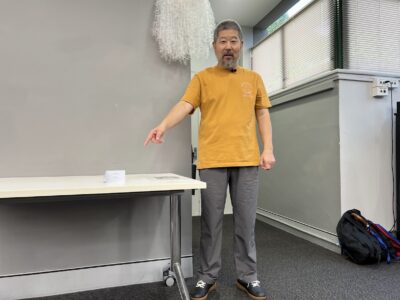
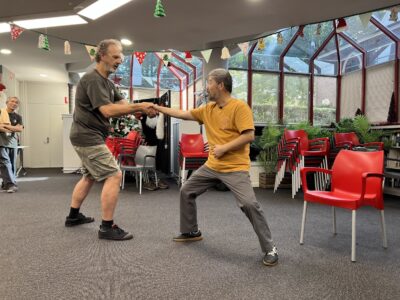
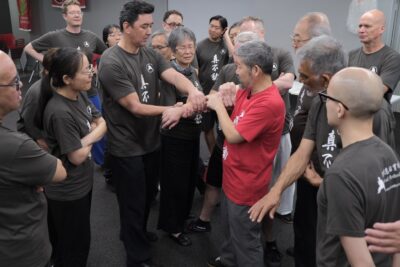
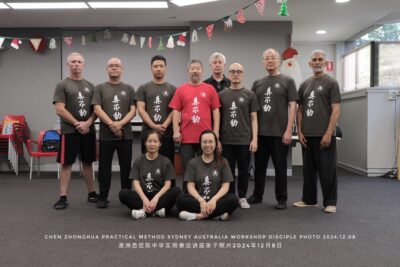
Purchase Sydney 202412 Practical Method Workshop Video Package

